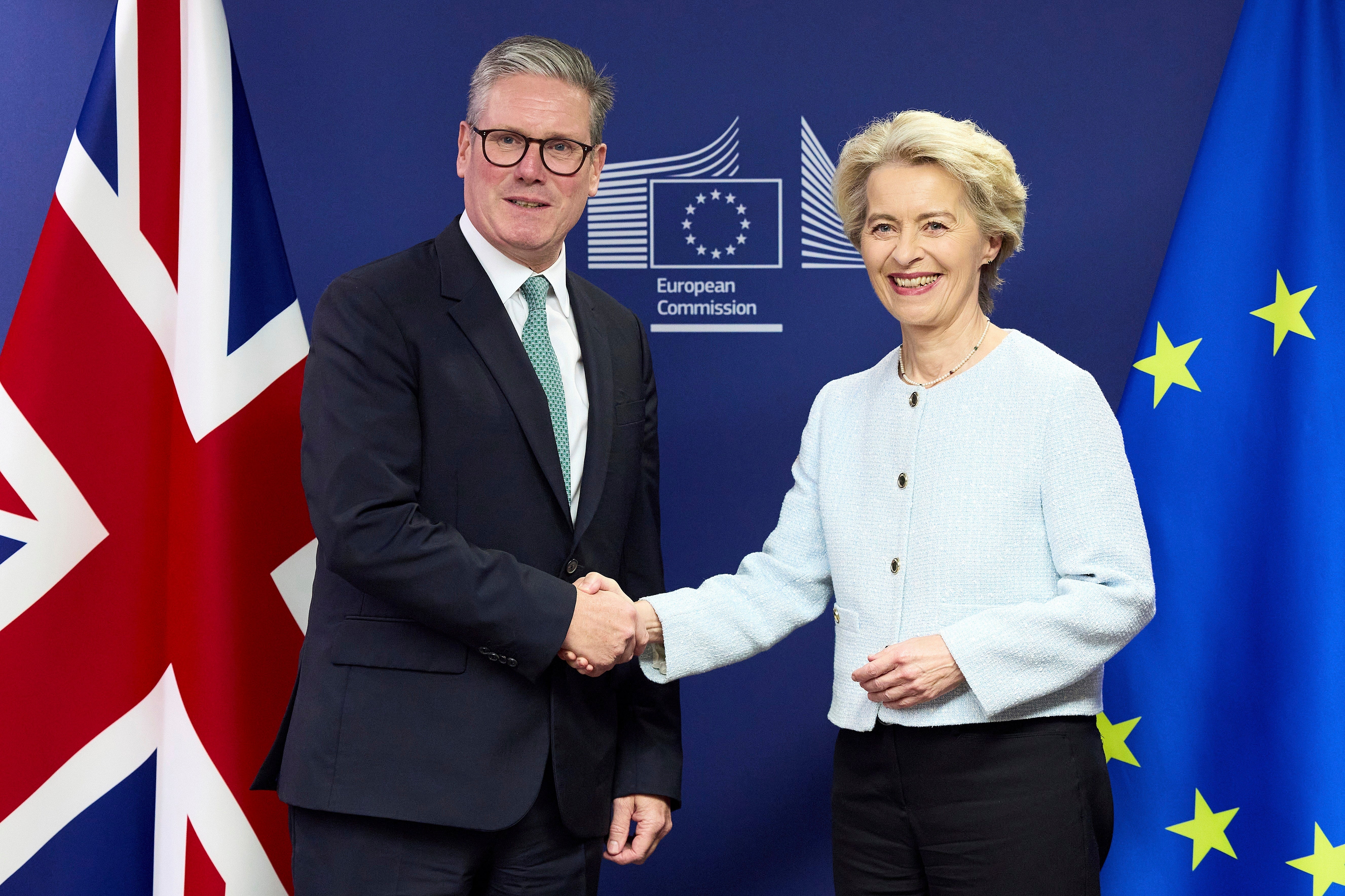British food sales to the EU have fallen by almost a fifth since Brexit, a new report shows, with campaigners calling on Sir Keir Starmer to urgently cut red tape holding back exporters.
New requirements for physical, documentary and ID checks have complicated food trade between the UK and Europe, leading to a 16.3 per cent drop each year in food exports to the EU, the Centre for Inclusive Trade Policy (CITP) found.
The drop-off has meant a £3bn hit to food exports on average in each of the three years since the end of the Brexit transition period, the report found.

And researchers found that British food standards in most areas have declined relative to the EU, which has introduced stricter standards including on arsenic in baby foods that the UK has not followed. The only area where Britain has introduced stronger legislation than Brussels since leaving the bloc is animal welfare standards, with stronger laws on cosmetics testing on animals and the banning of live animal exports for slaughter.
Emily Lydgate, environmental law professor at the University of Sussex, which hosts the CITP, said: “We’ve found significant divergence in EU and UK agri-food legislation since Brexit. This is more than just new regulation – it’s also differences in ways of setting and enforcing that regulation. This divergence has increased costs and reduced trade to the EU.”
During the general election, Sir Keir promised a veterinary agreement with the EU to “prevent unnecessary border checks and help tackle the cost of food”.
The prime minister said the plan was part of a drive to “tear down unnecessary barriers to trade” with the bloc.
But, amid an ongoing post-Brexit “reset” of UK relations with the EU, he has not yet made any concrete progress on such an agreement.
Ms Lydgate said the PM needs to pursue a deep agreement with Brussels, as a shallow deal would “not do much to address existing barriers”. But the cost of a more comprehensive deal would be Britain likely having to align more closely with EU standards and boost its own border controls, she added.

And Liberal Democrat spokesperson on Europe James MacCleary told The Independent: “British farmers have been under siege in recent years. It was an industry facing huge challenges even before the Conservatives’ botched EU exit deal. This was compounded by terrible deals with Australia and New Zealand.
“The new Labour government have made matters even worse with their ill-conceived reforms to inheritance tax for farmers and decision to end funding from the basic payments scheme early.”
He added that a pragmatic deal with the EU could offer the sector a major boost, but said with trust among farmers in Sir Keir’s government so low, “they need to get on with it and deliver real solutions”.
Before Brexit, around 90 per cent of UK food law was made in the EU, which the report said “underpinned the UK’s reliance on EU food and facilitated the development of highly integrated supply chains within and between UK and EU”.
Britain’s newfound “third country” status has imposed a new set of trade barriers, adding significantly to the burden facing those exporting to Europe.
The report piles pressure on Sir Keir ahead of further talks with EU leaders early next year and the renewal of the Trade and Cooperation Agreement (TCA) underpinning UK-EU relations later in 2025.
But the PM has drawn strict red lines around a return to the single market, customs union or the EU itself.
Liz Webster, founder of the Save British Farming campaign, told The Independent that British farmers are “desperate to be set free” of the red tape “gumming up trade with our biggest market”.
“Brexit has delivered all pain with no gain for exporters and importers,” she added.
But Ms Webster said the report shows the difficulty of a “have-your-cake-and-eat-it Brexit”, with the illusive concept of sovereignty and major trade deals not marrying with the rules of the EU single market.
She said: “It is abundantly clear that the easier and vastly more popular alternative to complex and difficult SPS negotiations necessitates Keir Starmer dropping his unpopular red lines on Brexit and embracing the journey back into the single market and customs union.
“It’s way past time to admit that Brexit is a failed experiment.”
Mark English, policy expert at the European Movement UK, said: “Post-Brexit reality means having to overcome massive complications to achieve advances that are small compared to the huge benefits of being in the single market and customs union.
“This is a very welcome report that shows both the potential benefits of a food safety agreement and the limits to those benefits while highlighting the major trade-offs needed to negotiate such an agreement.”
And European Movement UK chief executive Emma Knaggs added: “Brexit has increased costs, spawned previously undreamt-of bureaucracy and seriously damaged trade.
“The government needs to negotiate a new SPS agreement with the EU that reduces the need for animal health checks and veterinary involvement, smooths trade across the Channel, and crucially, dramatically cuts the amount of post-Brexit red tape for the UK’s exporters.”
A Government spokesperson said: “We have been clear that a veterinary or SPS agreement could boost trade and deliver significant benefits on both sides. “Final arrangements are subject to negotiations but the UK and EU have similarly high standards.”







